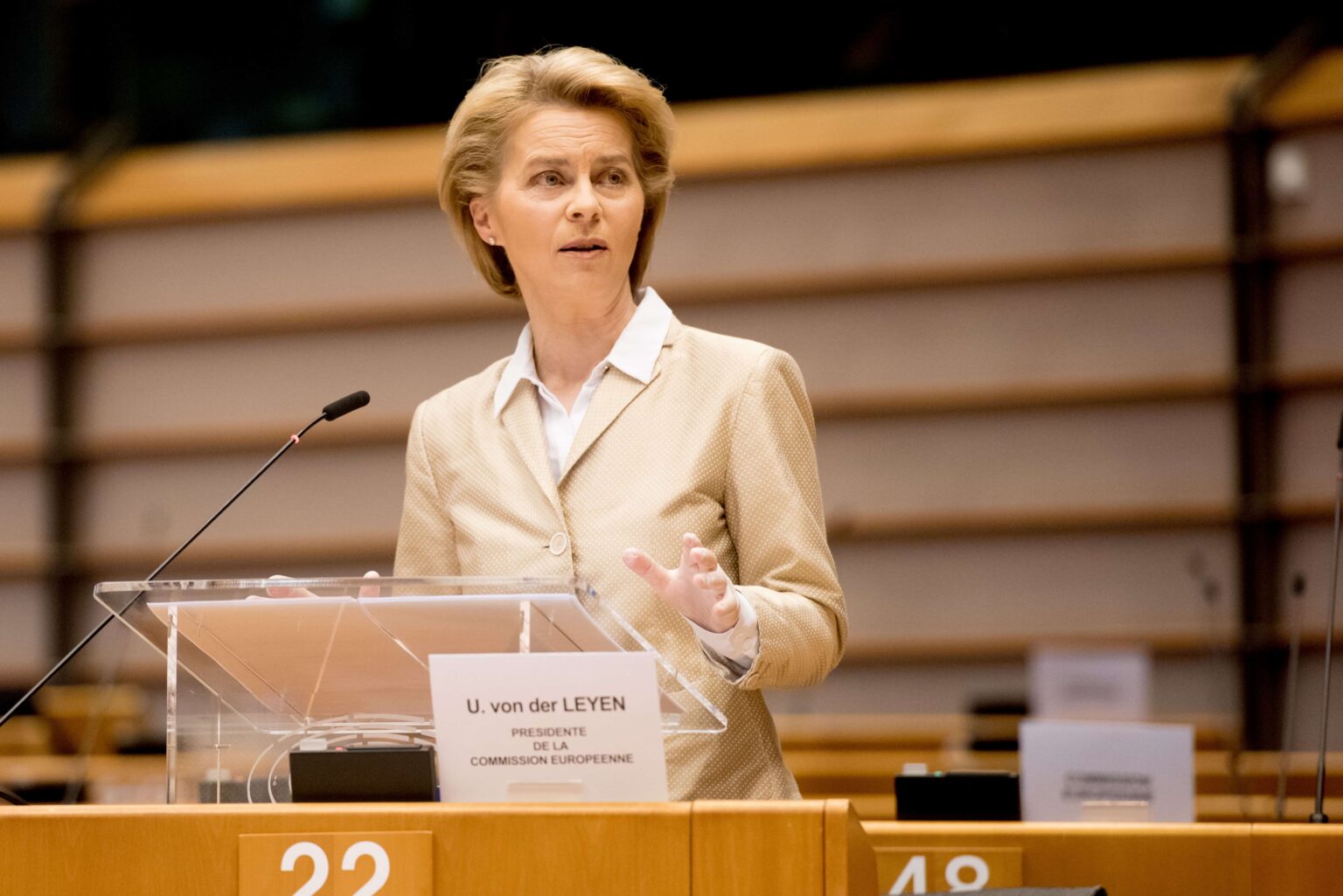Open Letter to President Ursula von der Leyen: keeping equality for all at the core amid the COVID-19 crisis

ILGA-Europe’s Executive Director, Evelyne Paradis calls the European Commission to prioritise minority and human rights. “The response to Covid-19 is bringing so many vulnerable people in our society into focus, and we cannot look away.”
Dear Commission President,
As the global Covid-19 crisis deepens, it is becoming abundantly clear that, beyond the economy, the consequences of governments’ measures to tackle the pandemic will also be profoundly social, and if not checked in a bold and timely fashion, will only further fuel existing inequalities in our societies.
As the European Commission is revising and re-prioritising its 2020 work programme, ILGA-Europe is urging you and the college of Commissioners to keep equality for all at the core of its policies.
How we respond to this public health crisis and the consequences on our economies will determine what our communities, our society, will look like once we emerge out of 2020. Rebuilding will not be and should not be about the economy only. This can and should be a watershed moment, a breaking point from which we choose to rebuild societies that are founded on a model of social justice and sustainability.
For this to happen, the European Commission needs to set out very clearly in its revised work programme how social, economic and financial measures designed to meet the challenges of the COVID 19 crisis, will be accompanied by measures tackling the inequalities and structural discrimination affecting marginalised communities.
The response to Covid-19 is bringing so many vulnerable people in our society into focus, and we cannot look away. It is the responsibility of the European Commission now to propose meaningful action on how to tackle the crisis of inequality that has become dramatically visible over the past few weeks.
Working in the LGBTI sector, ILGA-Europe is constantly being made aware of many heart-breaking situations emerging for those who are the most marginalised of an already marginalised group. Young LGBTI people are finding themselves trapped in hostile, locked-down family situations. Large numbers in the LGBTI community who are experiencing homelessness, particularly young people excluded from their families, are left unprotected by lockdowns, while the impact of Covid-19 on healthcare systems will have far-reaching effects for trans, intersex, and HIV positive-people. Meanwhile, LGBTI groups have to reinvent themselves as food banks for their communities, while financial and political pressures are quickly mounting on activist organisations and community groups, already raising concerns about the ability of many to survive this crisis.
Sadly, such experiences are shared by many marginalised and vulnerable populations at the moment. The experience of a young gay or trans person trapped in a household experience that is oppressive is shared with the experience of a woman who is stuck at home in an abusive relationship, or the experience of an older person who is living in containment with an abusive grown-up child. Beyond the people who are sick, tragically dying and their families, those most affected in Europe and around the world are the ones in precarious employment and with insecure incomes, with poor access to health care, without safe housing, from structurally marginalised communities, and undocumented migrants.
Taking concrete measures to promote equality – whether it is for LGBTI people, persons with disabilities, older people, young people, racialised minorities, gender equality, among many others – is a part and parcel of a successful recovery plan, and cannot be postponed.
If we do not address the effects this crisis is having on people’s mental health, how are we going to address the major fallout that is definitely coming down the line? If we do not ensure that equal access to health care and safe housing, how are we to ensure that public health measures will be as effective as needed to combat the pandemic? If we are not already looking at how increased social tensions in society is exacerbating the scapegoating of vulnerable groups, how are we going to counter governments who see this pandemic as an opportunity to strengthen authoritarian rule and undemocratic tendencies?
All of this needs to be part of our thinking now, and not once we’re out of this crisis.
Equality is not secondary to economies and it is not something to focus on only when we are no longer in crisis. A holistically healthy economy absolutely depends on solid structural equality. This is a crucial moment for the EU to prioritise minority and human rights, so that as we take positive steps to move out of this crisis and beyond, the fundamental principles of the European project are core, and not just perceived by governments and the people as an afterthought.
Yours sincerely,
Evelyne Paradis
Executive Director,
ILGA-Europe